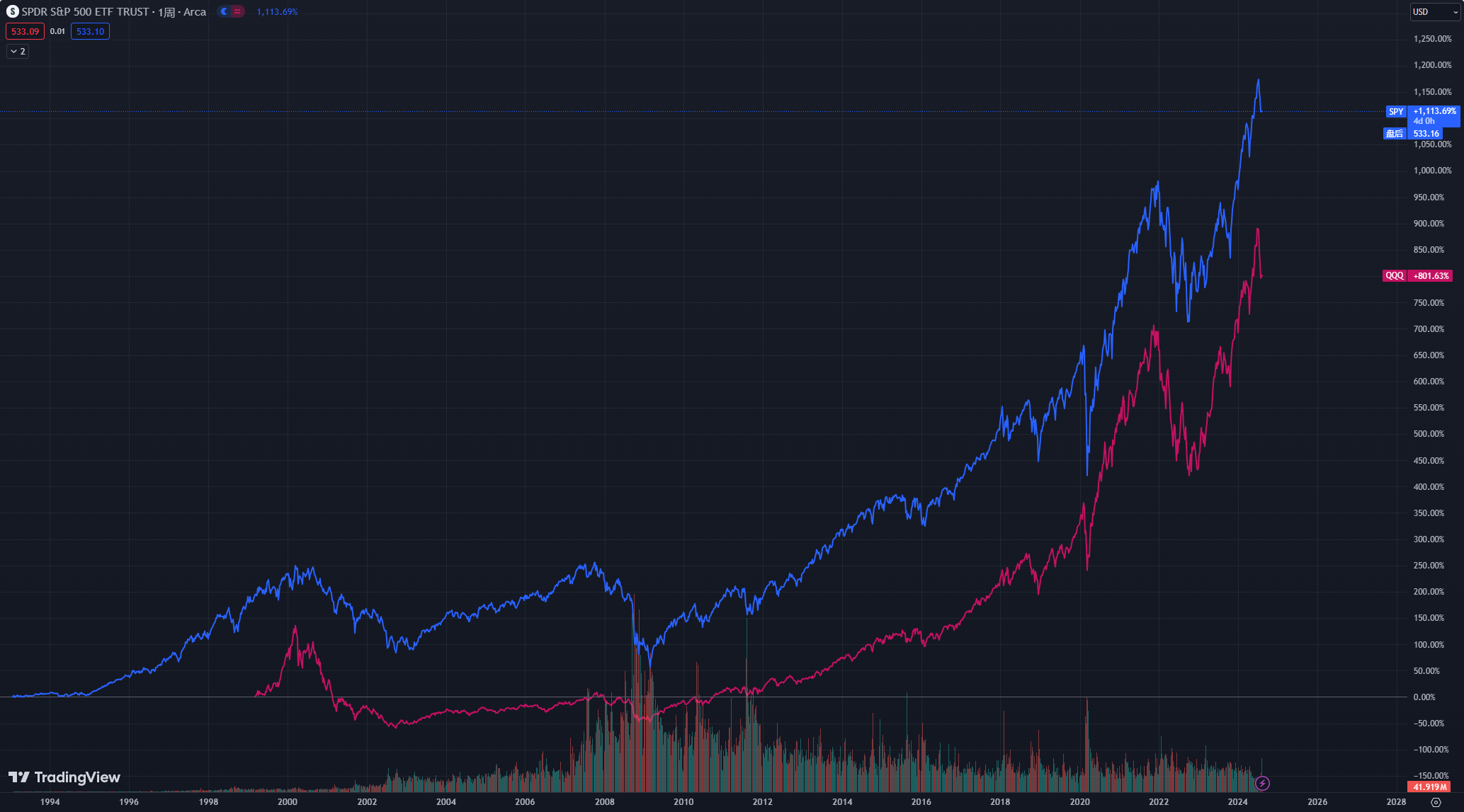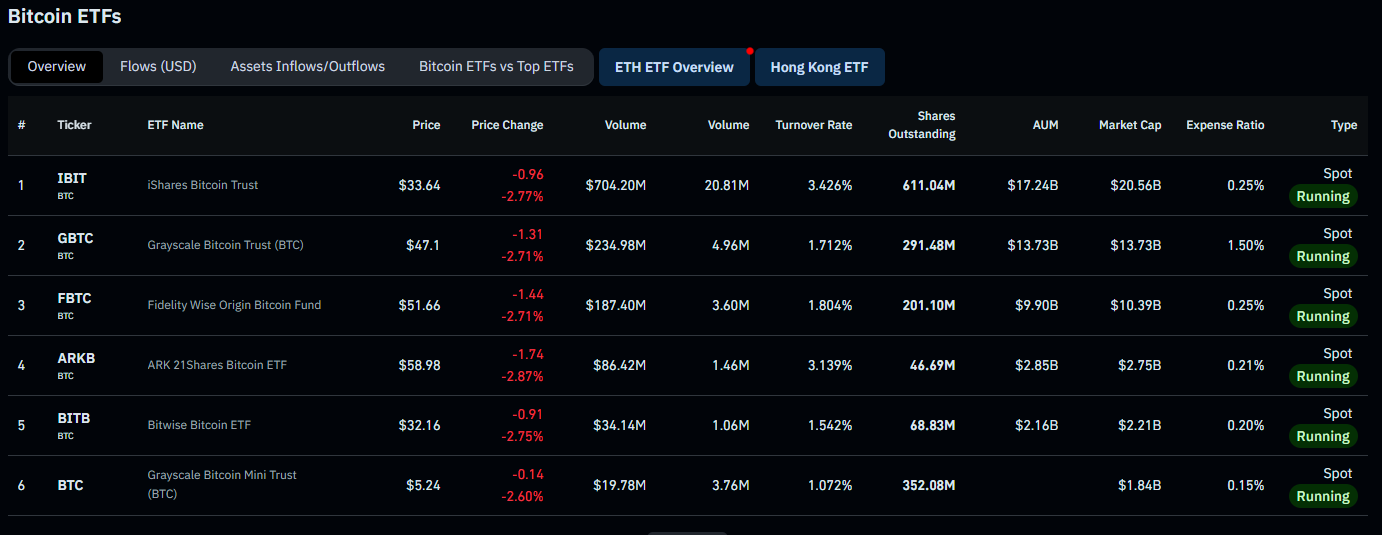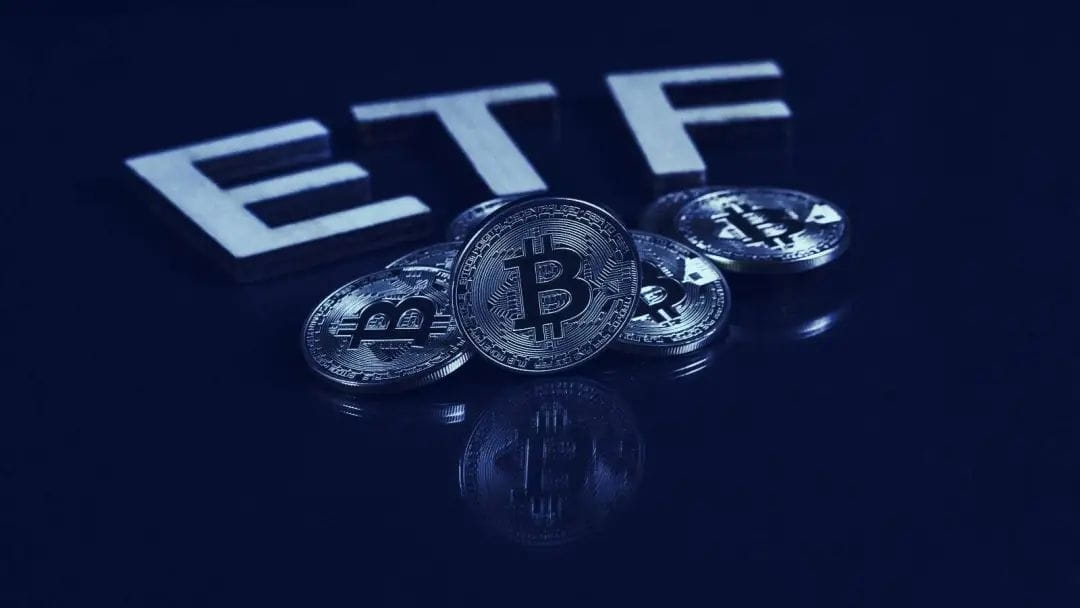Cryptocurrency trading has gone from obscurity to global popularity since the birth of Bitcoin. With the development of blockchain technology as well as cryptocurrencies, more and more traditional as well as institutional investors are noticing the future growth potential that cryptocurrencies possess. They are eager to invest in cryptocurrencies to capitalize on this emerging financial market opportunity, but do not want to take on the technical and regulatory risks associated with blockchain technology. Investors want to participate in the cryptocurrency market in a more convenient way, and Bitcoin ETFs provide them with a compliant and transparent investment channel. So what exactly is a Bitcoin ETF?
Before we get started on Bitcoin ETFs, we're going to go over what an ETF is.

What is an ETF?
An ETF (Exchange-Traded Funds) is a fund product that is listed and traded on a stock exchange. You can think of it as a basket filled with a wide variety of stocks, bonds, and other securities. The portfolio of securities in this basket is allocated according to a particular index (e.g., SP500, Nasdaq 100, etc.). The ETF transforms the value of the index from a traditional indicator of the rise and fall of the securities market into a capital security with liquidity. The management of the index constituent stocks is carried out by a professional institution, and the gain or loss of the index movement is directly reflected in the rise or fall of the value of the certificates. Therefore, the portfolio's content or weighting will only be adjusted due to changes in the linked index's constituents and their weightings to align with the objective of "passive management." "Passive management" refers to a management style where there is no fund manager actively selecting component stocks and controlling their holdings. The selection and weighting of component stocks are determined by the tracked index. As there is no active management by a fund manager, the fund costs are also relatively lower. Common ETFs include the S&P 500 Index ETF (SPY) and the Nasdaq 100 Index ETF (QQQ).

What are some common ETFs?
Broad-based Index ETFs: These track indexes that represent the entire market or large market segments, such as the S&P 500 Index ETF.
Sector ETFs: These track indexes focused on specific sectors, like technology ETFs or healthcare ETFs.
Thematic ETFs: These track indexes built around specific themes, such as new energy ETFs or artificial intelligence ETFs.
Bond ETFs: These track bond indexes, including government bond ETFs and corporate bond ETFs.
Commodity ETFs: These track commodity indexes, such as gold ETFs or oil ETFs.
ETF Characteristics
Low Fees: Compared to traditional funds managed by fund managers, ETFs generally have lower fees.
Diversification: An ETF typically holds multiple securities, which helps to diversify an investor's risk.
Transparency: The constituent stocks of an ETF are publicly available, allowing investors to clearly understand their investment portfolio.
What is a Bitcoin ETF?
A Bitcoin ETF is a financial product that mirrors the price of Bitcoin, allowing investors to trade it on traditional stock exchanges. This regulated investment vehicle provides individuals with a convenient way to participate in the cryptocurrency market without having to directly handle digital assets. Bitcoin ETFs lower the barrier to entry for investing in cryptocurrencies, making them a good option for those who want to invest in Bitcoin but are unfamiliar with the operations of cryptocurrency exchanges. Furthermore, as they are listed on regulated stock exchanges, investor rights are better protected.

Historical Background of Bitcoin ETFs
The Bitcoin ETF represents a deep integration between the cryptocurrency industry and traditional finance. However, this process has not been smooth sailing; it has undergone a long and winding history. The earliest Bitcoin ETF application dates back to 2013 when the Winklevoss brothers submitted the first-ever Bitcoin ETF listing application. But for many years, the US Securities and Exchange Commission (SEC) rejected dozens of Bitcoin ETF applications.
In July 2016, blockchain technology company SolidX submitted a Bitcoin ETF application to the SEC.
In January 2017, Grayscale submitted its first Bitcoin ETF application to the SEC, but later announced its withdrawal in October of the same year.
In December 2017, Direxion and GraniteShares respectively submitted Bitcoin ETF applications to the SEC, but both were rejected in August 2018.
In January 2019, Bitwise submitted a Bitcoin ETF application to the SEC, but it was rejected in October of the same year.
In June 2020, WisdomTree Trust submitted a Bitcoin ETF application to the SEC, with only 5% of its assets being Bitcoin.
……
In fact, it wasn't until 2021 that the first Bitcoin ETF in North America, the Purpose Bitcoin ETF, was approved and listed for trading on the Toronto Stock Exchange in Canada.
In October 2021, the US SEC approved the first Bitcoin futures ETF, the ProShares Bitcoin Strategy ETF, for listing and trading. This was the first Bitcoin ETF in the United States. The approval of the first US Bitcoin futures ETF gave many companies renewed confidence to continue applying for spot Bitcoin ETFs. Finally, on January 10, 2024, the US SEC approved 11 spot Bitcoin ETFs for listing and trading, marking a milestone event in the cryptocurrency market. The approval of Bitcoin ETFs signifies that Bitcoin has gained wider acceptance within the traditional financial system.

Advantages of Bitcoin ETFs
Simplified Investment Process: Investors don't need to worry about wallet security, private key protection, etc., and can trade on traditional stock exchanges without registering on new cryptocurrency platforms.Increased Market Liquidity: Bitcoin ETFs provide a legal and compliant channel for traditional and institutional investors to participate in the Bitcoin market, facilitating capital inflows and enhancing market liquidity.Investor Protection: Bitcoin ETFs are regulated by regulatory bodies, offering better investor protection compared to cryptocurrency exchanges.Portfolio Diversification: Investors can participate in the Bitcoin market without directly holding Bitcoin, allowing them to include Bitcoin as part of their investment portfolio, enriching it and achieving diversification.
As an investment tool, Bitcoin ETFs have undergone a lengthy approval process, serving as a bridge between traditional financial markets and the cryptocurrency market. They simplify the investment process, enhance market liquidity, increase transparency and security, and provide investors with diversified investment options.

